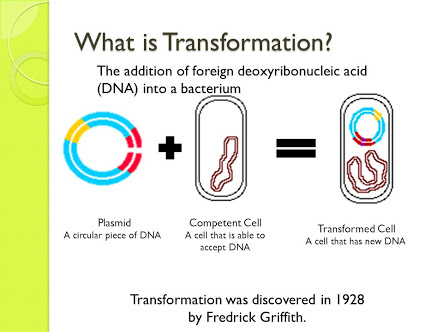What is a bacterial transformation?
1 Answer
Natural transformation is a bacterial adaptation for DNA transfer that depends on the expression of numerous bacterial genes.
Explanation:
The process involves the introduction of derived DNA fragments from a donor bacteria to a recipient bacteria. This conversion of one genotype into another by the conversion of exogenous DNA is termed as transformation.
Most types of cells cannot take up DNA efficiently unless they have been exposed to special chemical or electrical treatment to make them permeable. However, some types of bacteria are naturally transformable and can take DNA from surroundings. It is a complex energy requiring development process. The DNA integrated into the host chromosome is usually derived from another bacterium of the same species, and is thus homologous to the resident chromosome.
Natural genetic transformation appears to be an adaptation for repair of DNA damage that also generates genetic diversity. In prokaryotes, this may have been the ancestral process that gives rise to meiotic sexual reproduction in eukaryotes.

 )
) 